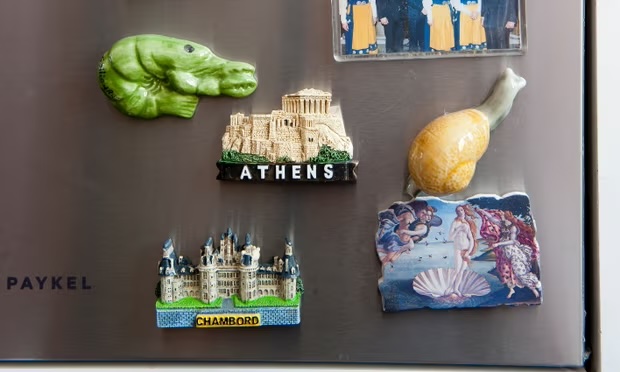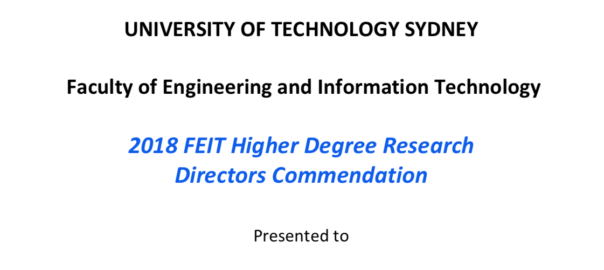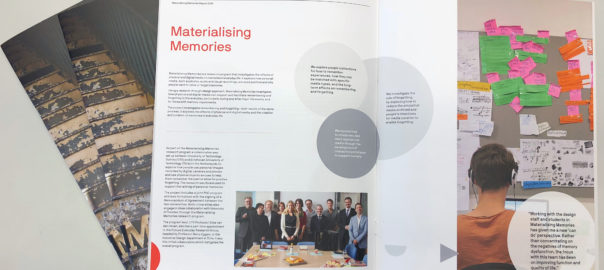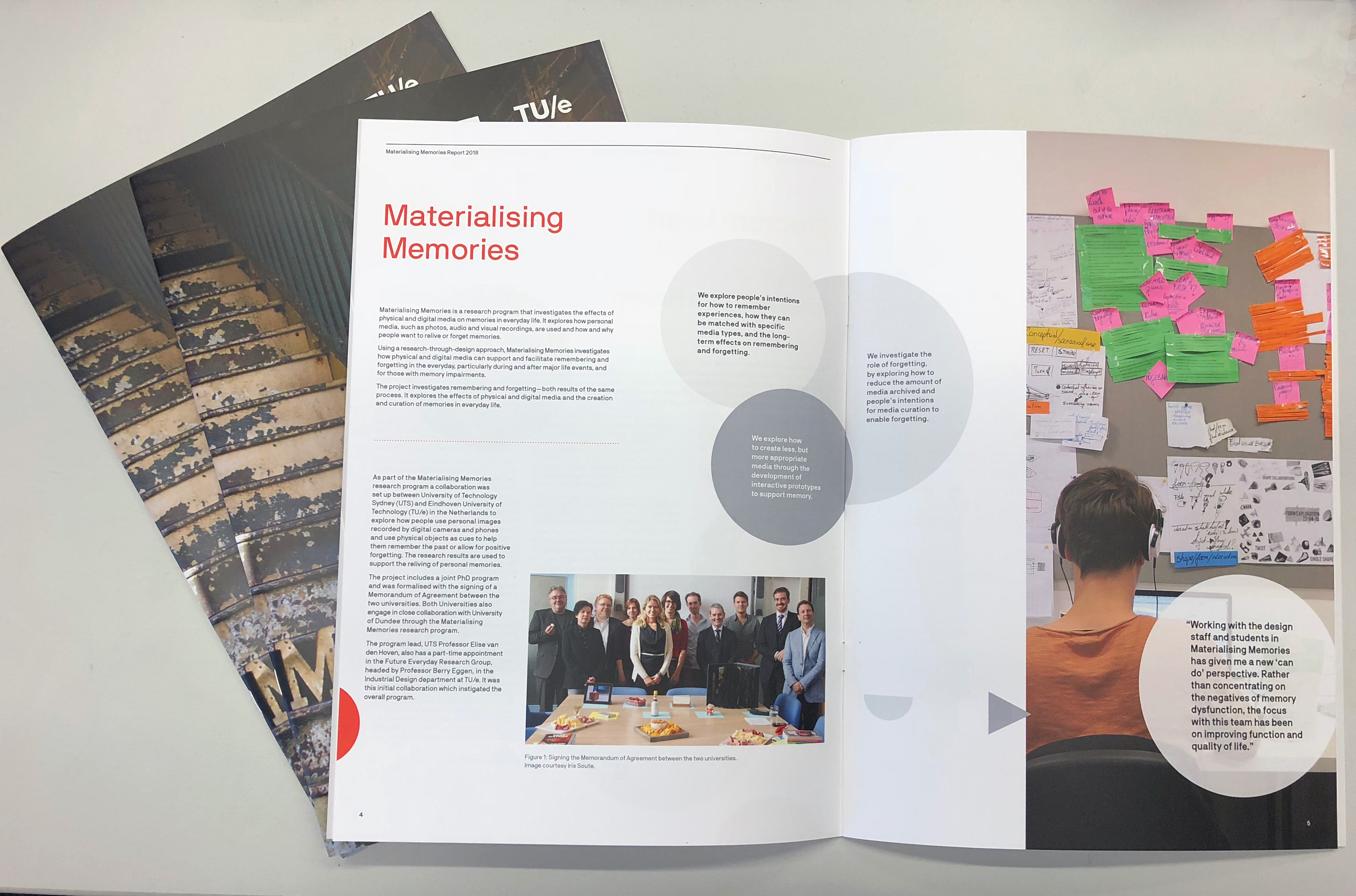The Exertion Games Lab (exertiongameslab.org) in Melbourne (directed by Florian ‘Floyd’ Mueller) and the Materialising Memories research program (www.materialisingmemories.com) in Sydney (directed by Prof. Elise van den Hoven), are seeking exceptional PhD and Post-Doc candidates to research the design of interactive muscle or motor memory systems.
We are looking for two candidates who value an interdisciplinary design studio environment. You will be highly motivated, willing to learn a variety of skills, extremely creative as well as technical, and also have highly developed analytical and communicative skills. Prior research experience (publications, etc.) is desirable and so are people-centered design skills, hardware prototyping abilities (Arduino, etc.) and/or programming skills. We are looking at potential for creativity, excellence, drive and people who are a pleasure to have on the team.
The focus of the research will be to understand the design of interactive muscle memory (motor memory) systems: The candidates will study how people use muscle memory in everyday life, will prototype interactive muscle memory systems and study their use in order to understand what designers can learn from remembering activities that involve the active human body in regard to designing interactive systems. This project will utilize the Exertion Games Lab’s Qualisys motion capture system and the electronic muscle stimulation system (amongst others). The candidates will engage with prototyping equipment to invent a series of future muscle memory experiences and study the associated user experiences.
See also our CHI2020 workshop: motorhci.com
Entry requirements for PhD candidates:
You will need to have a four-year degree that includes a thesis or a three-year Bachelor and a Master’s degree by research, for exact details see the link below. Typical backgrounds are interaction design, human-computer interaction, game design, computer science, industrial design, electrical engineering, human movement, sports science, performing and media arts but we are curious to hear what you can contribute. All nationalities are encouraged to apply.
All PhD positions are full-time, 3 years, available to all nationalities, onsite, and by thesis, i.e. conclude with a thesis in the field of interaction design/HCI supervised by Florian ‘Floyd’ Mueller and Elise van den Hoven. Scholarships are available according to the standard Australian Postgraduate Award rate of approx. AUD 28,000 per year.
Post-Doc openings:
The Post-Docs (Research Fellows) positions are for 3 years and are paid on Academic Level B ($AU 97,203 – $115,429 pa, plus 17% employer superannuation).
First, applicants will apply with an expression of interest to the email below. After the internal interview with the Exertion Games Lab and Materialising Memories program, the candidate will need to apply to the general university admissions office. This two-step process ensures that we are able to endorse your application.
===============================================
The Exertion Games Lab researches the future of interfaces for playful experiences. Our research is focused on the merging of play, technology and the active human
body, drawing from research streams such as interaction design, human-
computer interaction and computer games research. We publish mostly at CHI, CHI PLAY, DIS, TEI, Ubicomp (IMWUT), and UIST.
The culture in the Exertion Games Lab is one of interdisciplinary work. At the Exertion Games Lab, we do not just philosophize and write about the future, we actively invent it. We emphasize the development of working prototypes in order to fully understand what play is, why we play, and how we will play in the future. We do this because we believe playing is a fundamental part of what makes us humans who we are, and an understanding of this brings us closer to our vision of a better world filled with interactive technologies that support human values.
The Exertion Games Lab also hosts weekly presentation, writing and reading group activities to support the candidate. We are also offering a large space to research and design in an open plan lab environment.
You might find it useful to read about the lab’s vision: Mueller, F., Byrne, R., Andres, J., Patibanda, R. Experiencing the Body as Play. Proceedings of the 2018 CHI Conference on Human Factors in Computing Systems. (CHI 2018). ACM. Talk video. Best Paper Award (top 1%).
The Computer-Human Interaction and Creativity (CHIC) group at Monash (which was in the top 20 institutions at CHI’19, with a similar result to be expected at CHI’20 with 21 conditionally accepted papers): https://www.monash.edu/it/our-research/strengths/chic
The Materialising Memories research program (www.materialisingmemories.com) uses design research to study and support people in their everyday remembering practices. We investigate remembering and forgetting, the effects of physical objects, the body and digital media on memories in everyday life and the creation and curation of these objects and media. Our insights are used to design and evaluate innovative objects and interactive products that facilitate remembering and forgetting in everyday life, during and after major life events, for those with healthy memories and for those with memory challenges.
Materialising Memories is a multidisciplinary team distributed between University of Technology Sydney, Australia, Eindhoven University of Technology, the Netherlands and University of Dundee, UK.
This paper introduces the Materialising Memories research program: Hoven, E. van den (2014). A future-proof past: Designing for remembering experiences. Memory Studies, vol. 7, issue 3, July 2014, pp. 373-387.
===============================================
PhD entry requirements: https://www.monash.edu/graduate-research/faqs-and-resources/content/chapter-two/2-1
PhD information: https://www.monash.edu/it/our-research/graduate-research/how-to-apply
Please submit your expression of interest, including CV and portfolio website if available by email to “info at exertiongameslab dot org” and “elise dot vandenhoven at uts dot edu dot au”, with subject line “Application: Muscle Memory”.
Please also check our websites for additional information regarding the openings.
Looking forward to reading your applications!
Thanks,
The Exertion Games Lab & The Materialising Memories research program
http://exertiongameslab.org & https://www.materialisingmemories.com



